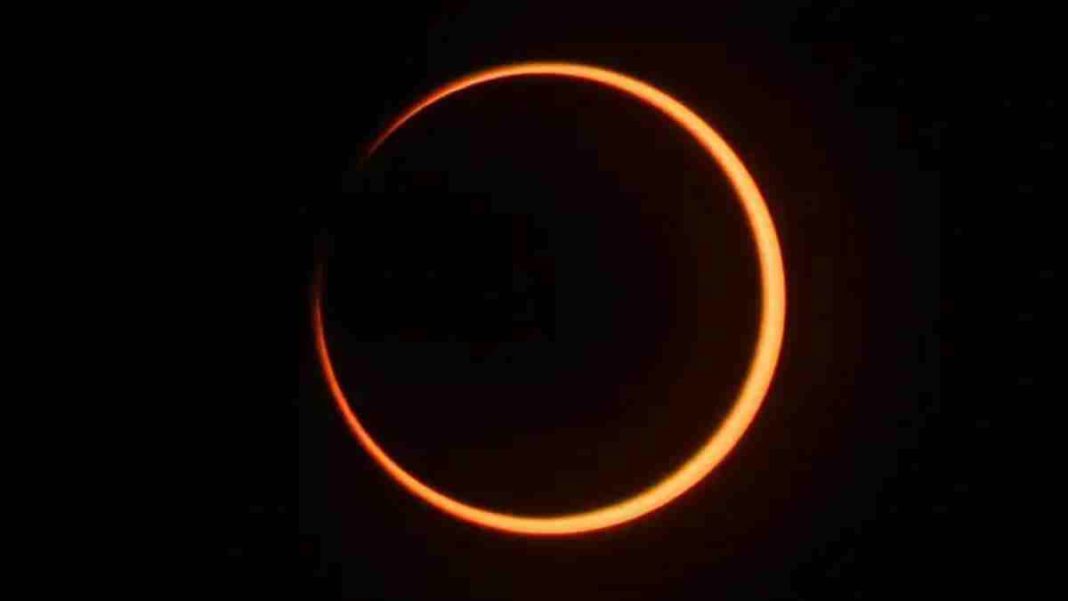UNITED STATES: A celestial spectacle of rare proportions is set to grace the skies this week, as a ‘Ring of Fire’ solar eclipse prepares to take center stage.
This event is a treat for those fortunate enough to be in the right geographic locations, and it’s a cosmic rarity that won’t be visible again until 2046.
Astronomy’s grand show
Scheduled for October 14, 2023, this annular solar eclipse promises to be a breathtaking visual display, captivating the hearts and minds of skywatchers.
The phenomenon occurs when the moon partially covers the sun, leaving a brilliant ‘ring of fire‘ or annulus visible in the sky. It’s a manifestation of the delicate celestial dance that Earth, the moon, and the sun engage in.
Geographic window of opportunity
This year’s ‘Ring of Fire’ solar eclipse is set to grace the skies over North, Central, and South America. It marks the first time this celestial spectacle has been visible in these regions since 2012.
The event provides an exceptional opportunity for millions of people in these parts of the Western Hemisphere to witness this natural wonder firsthand.
NASA’s livestream and safety precautions
For those unable to witness the ‘Ring of Fire’ eclipse in person, NASA has got you covered. The space agency plans to livestream the event, ensuring that people around the world can partake in this breathtaking celestial performance. They’ve also created an interactive map to help enthusiasts track the eclipse’s progress.
While this event is a mesmerizing show of nature’s grandeur, it’s crucial to take safety precautions when observing a solar eclipse. NASA has strongly advised that viewers use specialized eye protection designed for looking at the Sun.
Looking at the Sun without proper protection can cause severe eye damage. It’s essential to refrain from using camera lenses, telescopes, binoculars, or any other optical devices with eclipse glasses or handheld solar viewers, as the concentrated solar rays can burn through the filter, posing a risk to one’s eyesight.
What to expect
During the eclipse, the sky will grow dimmer, though not as dark as during a total solar eclipse. Some animals may begin to behave as if it is dusk, and the air may feel cooler, adding an extra layer of enchantment to this celestial display.
A global audience
Regrettably, the ‘Ring of Fire’ solar eclipse will not be visible in India and other parts of the world. However, NASA has a solution for those eager to partake in the experience.
The space agency plans to broadcast the event live on their official YouTube channel, commencing at 4:30 p.m. on October 14, 2023. This allows people from across the globe to share in the wonder of this rare celestial event.
Also Read: Rare Hybrid Solar Eclipse to Happen on April 20: Must-watch Event for Stargazers



